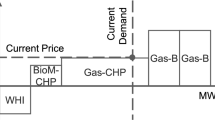Abstract
The district heating and cooling sector is experiencing new challenges with the current transformation of energy systems. The required decarbonization will result in a more complex heat energy system, as a few large plants which utilize fossil fuels will likely be replaced, mostly by smaller production plants distributed around the system, that use renewable or waste energy sources. Furthermore, district heating and cooling systems must be operated more efficiently and flexibly to ensure a consistent and cost-effective thermal energy supply, as well as effective participation in the power system balancing market. Because of the necessary changes in the energy system, district heating becomes increasingly beneficial to both end users as well as other energy sectors, and the number of connections is increasing in many countries in conjunction with the phase-out of fossil fuels such as oil and gas for space heating and hot water supply. In this changed environment, increased adoption of digital technology in the district heating and cooling sector provides a chance to make systems smarter, more flexible, efficient, and reliable, hence accelerating the necessary integration of additional renewable and waste energy sources into thermal supply systems.
However, many existing systems still lack a high level of digitalization. With more complexity, flexibility, more powerful tools, and approaches (and hence increased digitalization) will be required. Aside from technology, the integration of new digital business processes will make deployment easier. However, new concerns, such as data security and privacy, as well as questions concerning data ownership, must be addressed.
This paper reflects on the results of the research conducted as part of the IEA DHC Annex TS4 project and the depiction thereof in the “Digitalisation of District Heating Systems – Optimised Operation and Maintenance of District Heating and Cooling Systems via Digital Process Management” guidebook [1].
https://www.iea-dhc.org/the-research/annexes/2018-2024-annex-ts4
Access this chapter
Tax calculation will be finalised at checkout
Purchases are for personal use only
Similar content being viewed by others
Reference
Schmidt, D., et al.: Guidebook for the Digitalisation of District Heating: Transforming Heat Networks for a Sustainable Future, Final Report of DHC Annex ts4. AGFW Project Company, Frankfurt am Main, Germany (2023). ISBN 3-89999-096-X
Acknowledgement
The Guidebook of IEA DHC Annex TS4 is the product of a collaborative effort by numerous experts from various countries, and therefore the substance of this short paper. The entire list of authors of the guidebook may be seen in [1]. The authors would like to gratefully acknowledge all those who have contributed to the project by taking part in the writing process and the numerous discussions. This cooperative research work is funded by various national sources and from industry partner. The authors would like to thank for the given financial support.
Author information
Authors and Affiliations
Corresponding author
Editor information
Editors and Affiliations
Rights and permissions
Copyright information
© 2025 The Author(s), under exclusive license to Springer Nature Switzerland AG
About this paper
Cite this paper
Schmidt, D. (2025). Digitalization of District Heating: Transforming Heat Networks for a Sustainable Future. In: Jørgensen, B.N., Ma, Z.G., Wijaya, F.D., Irnawan, R., Sarjiya, S. (eds) Energy Informatics. EI.A 2024. Lecture Notes in Computer Science, vol 15271. Springer, Cham. https://doi.org/10.1007/978-3-031-74738-0_22
Download citation
DOI: https://doi.org/10.1007/978-3-031-74738-0_22
Published:
Publisher Name: Springer, Cham
Print ISBN: 978-3-031-74737-3
Online ISBN: 978-3-031-74738-0
eBook Packages: Computer ScienceComputer Science (R0)




